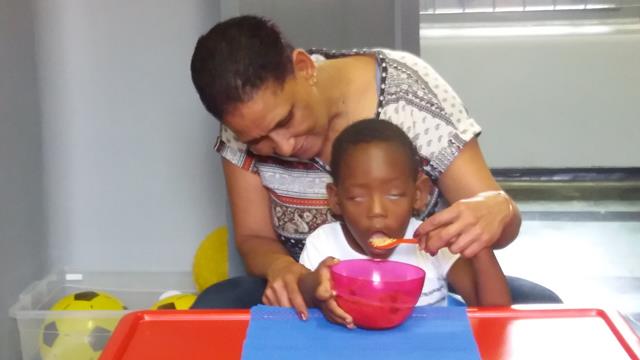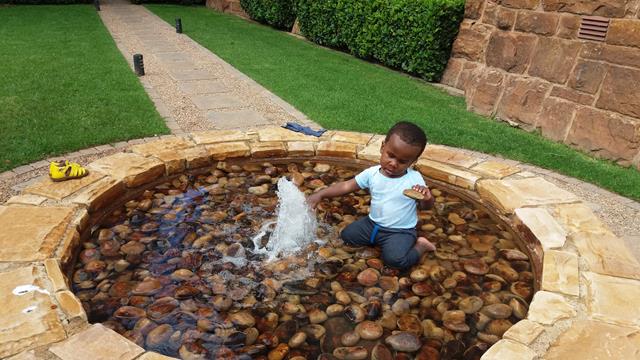Children with a visual impairment develop in much the same way as other children, although the rate and order in which skills develop may differ. It is not always obvious which difficulties children with a visual impairment experience.
Eye conditions cause different ways of seeing
Your child’s eye condition may influence –
- seeing things at a distance.
- seeing things close by.
- how clearly your child can see.
- what they can see in their wider field of vision.
- distinguishing colours.
It’s important to remember that each child is an individual and that even children with the same eye condition may appear to see very differently.

There are various factors which may affect a child’s vision:
- Your child’s level of vision may vary from day to day, or even from moment to moment. It may depend on the lighting and whether or not it is a familiar environment. Even mood can affect a child’s ability to see and make sense of the indistinct picture that their brain is receiving. If your child is tired, unwell or under pressure, they may not seem to use their usual level of vision.
- Children vary in the way they adapt and compensate for their visual impairment and how they find ways to learn by using and interpreting information from other senses.

- Generally, VI children have fewer opportunities to learn incidentally as in the case of their sighted friends. Many skills, which other children simply pick up, may need to be deliberately introduced to children who have a visual impairment.
- Children with visual impairment may not have the same variety of experiences as other children.
- For example, they may not participate as actively in the daily routines which in sighted children result in independence, in such activities as eating, bathing and dressing. They may also be less sure of their ability to get about, which affects how they interact with their physical environment.
- Both the quality and the quantity of information available are usually reduced. VI children have fewer clues to help them understand the meaning of sounds or the function of objects. They may perceive only part of an object or activity at a time. Consequently, their development may progress slower and unevenly, with unexpected gaps in understanding.
- It may take them longer to complete activities that involve vision. This can be frustrating for you and for them. The extra time and effort needed to do everyday things can also tire children with a visual impairment faster than other children of the same age.
- Children develop gradually, and in the beginning nobody can know where the strengths of a child with a visual impairment lie, or what aspects of life they might find particularly challenging. For children with multiple needs, it can be even harder to know what they might achieve, particularly if they find it hard to show you what they have understood. Children with multiple needs often stay at an early stage of development for a long time before first words and controlled body movement develop.
Some helpful tips
- Assume your child can understand – talk to them, not about or over them, and encourage others to do the same.
- Let them hear you talking about what they can do, not what they can’t do.
- Assume that in time they will learn to do some things for themselves. For each new skill, show them how to do one part of the process that you feel they could achieve on their own.
- Set them up for success and build on it.
- Discover their likes and dislikes and try to respect them.
- Use the things they like as rewards to encourage the repetition of positive behaviour.
- Find ways of showing them your interest in their smallest achievement.
Having read this, you may wonder how your child will cope. But with support – active involvement, guided exploration of real objects and experiences, and lots of verbal explanation – your child will learn and achieve a lot.
Children like routines. A well-planned day enables a child to recognise, and then anticipate, familiar events which helps them to cope with the different things that happen. Events such as eating, bathing and bedtime provide a pattern for young children’s lives.
Remember that your child is a child first. Understanding visual impairment and the effect it may have, is just a starting point. It leads to being able to help your child play, learn and enjoy life.
This Home Program guides you step by step to assist your baby with all the areas of development which are:

- Independence e.g., eating, hygiene and mobility

- Cognitive Development – Thinking skills
- Environmental Knowledge (Discovering the World Around You)

- Language Development – Communication
Send questions or comment about ECD here:
